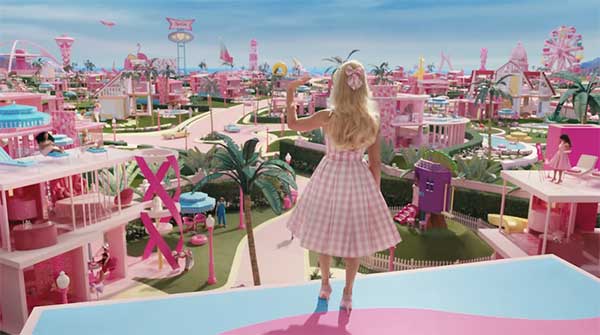Barbie celebrates individuality and embraces imperfection
 The most successful Hollywood film in years has been Barbie. Regardless of what one thinks of it, one must admit that it has generated a great deal of discussion. It almost seems like Barbie is a great work of art that leaves us contemplating the deeper meaning of life.
The most successful Hollywood film in years has been Barbie. Regardless of what one thinks of it, one must admit that it has generated a great deal of discussion. It almost seems like Barbie is a great work of art that leaves us contemplating the deeper meaning of life.
Spoiler Alert: If you have not seen the movie yet and plan to do so, stop reading now.
Several people recommended that I see Barbie, and while I enjoyed the colourful production and silly jokes, what sat with me were the existential elements of the film. I wondered if I was the only person who saw it that way, so I explored the commentaries about the film on YouTube. Some discussions were comical, and others were a complete waste of time. One, by a man who calls himself Eudaimonia, questioned whether the film was about seeking utopia. One cannot know the intent of the film’s writers, but what Eudaimonia said certainly resonated.
 |
| Related Stories |
| 1950s British movies were sometimes pretty good
|
| 80 for Brady good old Super Bowl fun
|
| Olivia de Havilland was more than an actress
|
The word “utopia” comes from the writings of Thomas More, a man who was executed by King Henry VIII for choosing his conscience over loyalty to his king. Utopia is actually a play on words, meaning “no place,” yet it has come to mean “the perfect place”.
The film begins in the utopia of Barbieland, where all the Barbies live an idyllic lifestyle, Barbies run everything, every night is girls’ night, and the Kens only live as accessories to the Barbies. No one gets old, and no one questions the meaning of their existence.
One day, Barbie does begin to question her existence and, on her quest to find meaning, travels with Ken to the real world. She ends up in another utopia, the world of corporate giant Mattel, the makers of Barbie. In essence, they preach that rampant consumerism is the answer to all our problems. If little girls play with Barbie dolls, they will be inspired to achieve their innate potential and live happy and fulfilling lives.
The other utopia comes when Ken experiences the real world and realizes that men do not have to be relegated to the role of accessory. Though he does not understand it, he embraces something called “the patriarchy” in a quest to bring meaning to his life. He returns to Barbieland before Barbie’s return and establishes “Kendom,” where the Kens now live in the Barbie houses and the Barbies serve them.
Neither of these utopias fulfill life’s deeper meaning or answer our most human questions. The life of a person is full of challenges. We suffer, we age, we get treated unfairly, and we even get cellulite. Most importantly, we ask about the meaning of our existence and our place in the world.
The story progresses with some interesting twists, but in the end, Ken realizes that neither he nor Barbie needs to be an accessory. As Barbie states, “It’s not Barbie and Ken. It’s Barbie. And it’s Ken.” In the final scenes, we see Ken wearing a shirt that says, “I am Kenough.”
Through Barbie’s interactions with real people, including the designer of the first Barbie doll, she rejects utopia and chooses to become a real woman, despite being aware of the difficulties this will entail.
As a confident male watching Barbie, I did not feel in any way threatened by the jokes about the patriarchy. As a human, I was not only entertained; I was also inspired. We do not live plastic, “perfect” lives. Being a person is messy. The challenge and the beauty of life is to make sense of our lived experiences and embrace the gift that each of us is to the world.
We are more than kenough; we are amazing. Utopia does not exist, but rapture comes from embracing who we are and making the world a better and kinder place.
Gerry Chidiac specializes in languages, genocide studies and works with at-risk students. He is the recipient of an award from the Vancouver Holocaust Education Centre for excellence in teaching about the Holocaust.
For interview requests, click here.
The opinions expressed by our columnists and contributors are theirs alone and do not inherently or expressly reflect the views of our publication.
© Troy Media
Troy Media is an editorial content provider to media outlets and its own hosted community news outlets across Canada.
